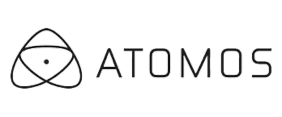In today’s fiercely competitive business landscape, recruiting the right engineering talent is absolutely vital for an organization’s success. Engineers are the driving force behind innovation, complex problem-solving, and keeping companies ahead of the curve. Engineering recruitment, however, is no walk in the park and is riddled with pitfalls that can have long-lasting consequences.
Some common challenges faced in engineering recruitment are creating accurate job descriptions, finding the right balance between technical and soft skills, promoting diversity and inclusivity, streamlining the interview process, retaining top talent, and effectively using recruitment agencies. If not tackled properly, these challenges can lead to hiring the wrong candidates, high employee turnover, and hinder the growth and development of a company.
This article will discuss six common pitfalls in engineering recruitment and provide practical tips on how to avoid them. By being aware of these pitfalls and implementing strategies to overcome them, companies can improve their recruitment process and increase their chances of attracting and retaining the best engineering talent.
Pitfall 1: Inadequate Job Descriptions
One of the most common pitfalls in engineering recruitment is creating vague or incomplete job descriptions. This can lead to attracting unqualified candidates, lengthening the recruitment process, and ultimately hiring the wrong person for the role. A poorly written job description not only hinders the recruitment process but also has a negative impact on the employer’s brand and reputation.
The Impact of Vague or Incomplete Job Descriptions
When job descriptions lack clarity or detail, candidates may struggle to understand the role’s requirements and responsibilities. This can result in a high volume of unqualified applicants, wasting valuable time and resources on screening and interviewing candidates who are not a good fit for the position. Additionally, a poorly written job description can deter qualified candidates from applying, as they may not fully grasp the role’s scope or the company’s expectations.
Tips for Crafting Effective Job Descriptions for Engineering Roles
To avoid this pitfall, it is essential to create clear and comprehensive job descriptions that accurately reflect the role’s responsibilities and requirements. Here are some tips for crafting effective job descriptions for engineering roles:
- Include a clear and concise title that accurately reflects the position.
- Provide an overview of the role, outlining its purpose and how it contributes to the organization’s overall goals.
- List specific responsibilities and tasks, including any required collaboration with other departments or teams.
- Detail the necessary technical and soft skills, as well as any desired certifications or qualifications.
- Highlight any unique aspects of the position, such as travel requirements or potential for advancement.
- Include information about the company’s culture, values, and mission to attract candidates who align with the organization’s ethos.
How Precise Job Descriptions Attract the Right Candidates
By crafting precise job descriptions, companies can effectively target the right candidates for engineering roles. Accurate and detailed job descriptions allow candidates to self-assess their suitability for the position, resulting in a higher-quality applicant pool. This, in turn, can streamline the recruitment process and increase the likelihood of hiring the best candidate for the role. Ultimately, a well-written job description sets the stage for a successful recruitment process, saving time and resources while attracting the right engineering talent.
Pitfall 2: Overemphasis on Technical Skills
While technical expertise is undoubtedly essential for engineering roles, overemphasizing technical skills during the recruitment process can lead to overlooking other crucial aspects of a candidate’s profile. Soft skills, such as communication, problem-solving, and teamwork, play a vital role in an engineer’s success and should not be underestimated.
The Importance of Soft Skills in Engineering Roles
Soft skills are critical in enabling engineers to effectively collaborate with colleagues, communicate their ideas, and adapt to changing project requirements. Engineers with strong soft skills are more likely to excel in their roles, contribute to a positive work environment, and drive innovation within the organization. Ignoring the importance of soft skills in the recruitment process can lead to hiring candidates who may struggle to integrate into the team or adapt to the company’s culture, ultimately hindering their performance and growth.
Balancing Technical and Soft Skills in the Recruitment Process
To avoid this pitfall, it is essential to strike a balance between technical and soft skills during the recruitment process. This can be achieved by:
- Incorporating behavioral interview questions that assess a candidate’s soft skills alongside technical assessments.
- Considering how a candidate’s soft skills complement their technical expertise and align with the organization’s values and culture.
- Encouraging hiring managers and interviewers to prioritize both technical and soft skills when evaluating candidates.
- Providing training and resources for hiring managers to effectively assess soft skills during the recruitment process.
Examples of Soft Skills to Look for in Engineering Candidates
Some soft skills to consider when recruiting engineers include:
- Communication: The ability to effectively convey ideas and information to colleagues, clients, and stakeholders is vital for engineers.
- Problem-solving: Engineers must be able to analyze complex situations, identify potential solutions, and make informed decisions.
- Teamwork: A collaborative mindset and the ability to work well with others are critical for engineers, as they often work in multidisciplinary teams.
- Adaptability: Engineers must be flexible and open to change, as they frequently encounter new challenges and evolving project requirements.
- Leadership: Strong leadership skills enable engineers to effectively manage projects, mentor junior team members, and contribute to the organization’s strategic direction.
By recognizing the importance of soft skills in engineering roles and incorporating them into the recruitment process, companies can ensure they hire well-rounded candidates who will excel in their roles and contribute to the organization’s success.
Pitfall 3: Lack of Diversity and Inclusivity
Another common pitfall in engineering recruitment is a lack of focus on diversity and inclusivity. Fostering a diverse and inclusive workforce is not only a moral imperative but also has numerous benefits for organizations. Ignoring diversity and inclusivity in the hiring process can lead to a homogeneous workforce, limiting innovation and hindering a company’s ability to adapt to new challenges.
The Benefits of a Diverse and Inclusive Workforce
A diverse and inclusive workforce offers numerous benefits for organizations, including:
- Increased innovation and creativity, as diverse perspectives lead to fresh ideas and unique solutions.
- Improved problem-solving and decision-making, as diverse teams are better equipped to analyze complex situations from multiple angles.
- Enhanced company reputation, as organizations that champion diversity and inclusivity are more likely to be viewed positively by clients, partners, and potential employees.
- Higher employee satisfaction and retention, as an inclusive work environment, fosters a sense of belonging and encourages employee growth and development.
Common Biases in Engineering Recruitment
Despite the clear benefits of a diverse and inclusive workforce, biases in the recruitment process can hinder efforts to promote diversity. Common biases in engineering recruitment include:
- Unconscious bias, such as affinity bias, confirmation bias, and halo effect, which can lead to favoring candidates similar to existing employees or forming opinions based on stereotypes.
- Reliance on traditional recruitment channels, which can limit the diversity of the applicant pool.
- Overemphasis on pedigree, such as prioritizing candidates from prestigious universities or with extensive experience, which can exclude candidates with diverse backgrounds and experiences.
Strategies for Promoting Diversity and Inclusivity in the Hiring Process
To avoid this pitfall and create a more diverse and inclusive workforce, organizations should consider the following strategies:
- Implement unconscious bias training for hiring managers and interviewers to increase awareness of biases and promote more equitable decision-making.
- Expand recruitment channels to reach a more diverse candidate pool, such as partnering with organizations that support underrepresented groups or leveraging social media and online forums to target diverse communities.
- Review job descriptions for potentially biased language and ensure they are inclusive and welcoming to candidates from all backgrounds.
- Standardize the recruitment process to minimize subjectivity, such as using structured interviews and objective assessment criteria.
- Track diversity metrics and set targets for improving diversity and inclusivity within the organization.
By implementing these strategies, companies can promote diversity and inclusivity in their engineering recruitment process, unlocking the numerous benefits of a diverse and inclusive workforce.
Pitfall 4: Inefficient Interview Process
An inefficient interview process can significantly impact engineering recruitment, leading to missed opportunities and a prolonged time-to-hire. A lengthy or disorganized interview process not only wastes valuable resources but can also deter top candidates from pursuing the opportunity further.
The Consequences of a Lengthy or Disorganized Interview Process
Some negative consequences of an inefficient interview process include:
- Increased time-to-hire, delaying project timelines and impacting overall productivity.
- Higher recruitment costs, as more time and resources are spent on coordinating interviews and screening candidates.
- Diminished candidate experience, as top talent may become frustrated with the process and pursue other opportunities.
- Lower offer acceptance rates, as candidates may lose interest or accept competing offers during a prolonged interview process.
Tips for Streamlining the Interview Process for Engineering Candidates
To avoid this pitfall, consider the following tips for streamlining the interview process:
- Develop a clear interview timeline and communicate it to candidates, ensuring they understand the process and expected timeframe.
- Coordinate interviews efficiently, minimizing delays and reducing the number of unnecessary meetings.
- Prepare interviewers with standardized questions and assessment criteria, ensuring a consistent evaluation process for all candidates.
- Utilize technology, such as video interviews or online assessment tools, to save time and improve the candidate experience.
- Regularly review and refine the interview process, identifying areas for improvement and implementing changes as needed.
Incorporating Technical Assessments and Culture-Fit Evaluations
One key aspect of streamlining the interview process for engineering candidates is incorporating both technical assessments and culture-fit evaluations. This ensures that candidates are not only evaluated based on their technical skills but also their compatibility with the organization’s values and culture. By incorporating these assessments into the interview process, companies can make more informed hiring decisions and improve the overall efficiency of their engineering recruitment efforts.
In conclusion, an efficient interview process is crucial for attracting and retaining top engineering talent. By streamlining the interview process and incorporating technical assessments and culture-fit evaluations, companies can optimize their engineering recruitment efforts and ensure they hire the best candidates for their organization.
Pitfall 5: Neglecting Employee Retention
Focusing solely on the hiring process without considering employee retention can lead to high turnover rates in engineering roles. High employee turnover not only incurs significant costs but also disrupts project timelines and negatively impacts team morale.
The Costs of High Employee Turnover in Engineering Roles
Some costs associated with high employee turnover in engineering roles include:
- Recruitment expenses, such as advertising, screening, and interviewing candidates to fill vacant positions.
- Onboarding and training costs for new employees, including time spent by managers and team members to bring new hires up to speed.
- Lost productivity during the transition period, as new employees may take time to reach full efficiency in their roles.
- Decreased team morale, as frequent turnover can create uncertainty and disrupt team dynamics.
The Role of Company Culture and Growth Opportunities in Employee Retention
Company culture and growth opportunities play a significant role in retaining top engineering talent. Employees are more likely to stay with an organization if they feel valued, engaged, and have opportunities for personal and professional growth. By fostering a positive work environment and providing employees with the resources and support they need to succeed, organizations can reduce turnover and retain their best engineering talent.
Best Practices for Retaining Top Engineering Talent
Here are some best practices for retaining top engineering talent:
- Offer competitive compensation and benefits packages, ensuring employees feel valued and fairly compensated for their work.
- Provide opportunities for growth and development, such as ongoing training, mentorship programs, and clear career progression pathways.
- Foster a positive and inclusive company culture, where employees feel supported, engaged, and aligned with the organization’s values.
- Recognize and reward employees for their hard work and accomplishments, creating a culture of appreciation and motivation.
- Encourage open communication and feedback, ensuring employees feel heard and respected within the organization.
By implementing these best practices, organizations can effectively retain their top engineering talent, reducing the costs and negative impacts associated with high employee turnover and ensuring a strong, productive workforce.
Pitfall 6: Ineffective Use of Recruitment Agencies
Recruitment agencies can be valuable partners in the engineering recruitment process, offering specialized expertise and access to extensive candidate networks. However, an ineffective use of recruitment agencies can result in wasted time, resources, and ultimately, hiring the wrong candidates.
The Benefits of Partnering with Specialized Engineering Recruitment Agencies
Partnering with specialized engineering recruitment agencies can offer several benefits, including:
- Access to a wider pool of qualified candidates, including passive candidates who may not actively be searching for new opportunities.
- Expertise in the engineering industry and specific niche markets, ensuring a better understanding of the required skills and qualifications for each role.
- Efficient recruitment process management, such as screening, interviewing, and negotiating offers, saving time and resources for the organization.
- Industry insights and market intelligence, helping organizations stay informed on industry trends and best practices in engineering recruitment.
How to Choose the Right Recruitment Agency for Your Organization
To ensure a productive partnership with a recruitment agency, organizations should consider the following factors when selecting an agency:
- Specialization in the engineering industry, as well as any specific niche markets relevant to the organization’s needs.
- Proven track record of success in placing candidates in similar roles or industries.
- Strong candidate networks and relationships within the engineering community.
- Transparent and communicative approach, ensuring clear expectations and regular updates throughout the recruitment process.
- Alignment with the organization’s values, culture, and recruitment goals.
Tips for Fostering Productive Relationships with Recruitment Agencies
To maximize the benefits of partnering with a recruitment agency, organizations should:
- Clearly communicate their hiring needs, expectations, and any specific requirements for each role.
- Provide feedback on the candidates presented by the agency, helping to refine the search and improve the overall recruitment process.
- Maintain open lines of communication with the agency, fostering a collaborative relationship and ensuring both parties are working towards a common goal.
- Continuously evaluate the agency’s performance and make adjustments as needed to improve the partnership and ensure the best possible outcomes.
By effectively utilizing recruitment agencies and fostering productive partnerships, organizations can optimize their engineering recruitment efforts and successfully attract and hire the best talent for their team.
How RunTime Recruitment Can Help You Avoid These Pitfalls
RunTime Recruitment specializes in engineering and technical recruitment, offering expertise and experience to help organizations navigate and overcome common recruitment challenges. Our team is dedicated to helping companies avoid the pitfalls outlined in this article and ensuring the successful hiring of top engineering talent.
The Expertise and Experience of RunTime Recruitment in Engineering and Technical Recruitment
With a deep understanding of the engineering industry and specific niche markets, RunTime Recruitment’s team of experts can effectively address the unique challenges faced by organizations in their recruitment efforts. Our extensive experience in engineering and technical recruitment allows us to provide tailored solutions that align with each organization’s specific needs and requirements.
Services and Solutions Offered by RunTime Recruitment to Address Common Recruitment Challenges
RunTime Recruitment offers a range of services and solutions designed to address the common pitfalls in engineering recruitment, including:
- Comprehensive job description support to ensure accurate and effective representation of each role.
- Balanced assessment of both technical and soft skills, ensuring well-rounded candidate evaluations.
- Strategies for promoting diversity and inclusivity in the hiring process.
- Streamlined interview processes, incorporating both technical assessments and culture-fit evaluations.
- Employee retention support, offering guidance on fostering a positive company culture and providing growth opportunities for employees.
- Effective partnerships with organizations to optimize the use of recruitment agencies and ensure successful outcomes.
Case Studies and Testimonials Demonstrating RunTime Recruitment’s Success in Helping Companies Avoid Engineering Recruitment Pitfalls
RunTime Recruitment has a proven track record of helping companies avoid common engineering recruitment pitfalls, resulting in successful hiring outcomes and satisfied clients. Our case studies and client testimonials showcase our expertise in addressing these challenges and demonstrate our commitment to providing exceptional service and results. By partnering with RunTime Recruitment, organizations can effectively navigate the complexities of engineering recruitment and ensure they attract and retain the best talent for their team.
Conclusion
In conclusion, successfully navigating the engineering recruitment process is essential for attracting and retaining top talent. By avoiding common pitfalls, such as inadequate job descriptions, overemphasis on technical skills, lack of diversity and inclusivity, inefficient interview processes, neglecting employee retention, and ineffective use of recruitment agencies, organizations can optimize their recruitment efforts and ensure the best outcomes.
It is crucial for companies to regularly review and improve their recruitment processes to stay competitive in the engineering talent market. Implementing the strategies and best practices outlined in this article can help organizations overcome common recruitment challenges and build a strong, diverse, and talented engineering team.
If you need assistance with your engineering and technical recruitment efforts, do not hesitate to contact RunTime Recruitment. Our team of experts is dedicated to helping you avoid these pitfalls and ensuring the successful hiring of top engineering talent for your organization. Let us partner with you on your journey to building a talented and diverse workforce that drives innovation and success.
Hire Highly-Skilled Engineers with RunTime Recruitment
Our expert team of engineers-turned-recruiters offers in-depth knowledge of technical recruitment in the engineering industry.
If your company is looking to recruit highly-skilled engineers worldwide, contact us today and we will do the sourcing for you. Or if you’re an engineer looking for new opportunities, you can check RunTime Recruitment’s job site for job vacancies.









